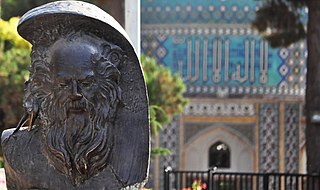A Quote by Lois Lowry
They were satisfied with their lives which had none of the vibrance his own was taking on. And he was angry at himself, that he could not change that for them.
Related Quotes
With only one life to live we can't afford to live it only for itself. Somehow we must each for himself, find the way in which we can make our individual lives fit into the pattern of all the lives which surround it. We must establish our own relationships to the whole. And each must do it in his own way, using his own talents, relying on his own integrity and strength, climbing his own road to his own summit.
A thousand for his love expired each day, And those who saw his face, in blank dismay Would rave and grieve and mourn their lives away- To die for love of that bewitching sight Was worth a hundred lives without his light. None could survive his absence patiently, None could endure this king's proximity- How strange it was that man could neither brook The presence nor the absence of his look!
There were times when it appeared to Dorian Gray that the whole of history was merely the record of his own life, not as he had lived it in act and circumstand, but as his imagination had created it for him, as it had been in his brain and in his passions. He felt that he had known them all, those strange terrible figures that had passed across the stage of the world and made sin so marvellous, and evil so full of subtlety. It seemed to him that in some mysterious way their lives had been his own.
Every man is of importance to himself, and, therefore, in his own opinion, to others; and, supposing the world already acquainted with his pleasures and his pains, is perhaps the first to publish injuries or misfortunes which had never been known unless related by himself, and at which those that hear them will only laugh, for no man sympathises with the sorrows of vanity.
He had the face of one who walks in his sleep, and for a wild moment the idea came to me that perhaps he was not normal, not altogether sane. There were people who had trances, I had surely heard of them, and they followed strange laws of which we could know nothing, they obeyed the tangled orders of their own sub-conscious minds. Perhaps he was one of them, and here we were within six feet of death.
How did it happen that now he could see everything so clearly. Something had given him leave to live in the present. Not once in his entire life had he come to rest in the quiet center of himself but had forever cast himself from some dark past he could not remember to a future that did not exist. Not once had he been present for his life. So his life had passed like a dream. Is it possible for people to miss their lives the way one can miss a plane?
I learned to slip back and forth between my black and white worlds. One of those tricks I had learned: People were satisfied so long as you were courteous and smiled and made no sudden moves. They were more than satisfied; they were relieved -- such a pleasant surprise to find a well-mannered young black man who didn't seem angry all the time.
A man cannot free himself by any self-denying ordinances, neither by water nor potatoes, nor by violent possibilities, by refusing to swear, refusing to pay taxes, by going to jail, or by taking another man's crops or squatting on his land. By none of these ways can he free himself; no, nor by paying his debts with money; only by obedience to his own genius.
The Plagiarism of orators is the art, or an ingenious and easy mode, which some adroitly employ to change, or disguise, all sorts of speeches of their own composition, or that of other authors, for their pleasure, or their utility; in such a manner that it becomes impossible even for the author himself to recognise his own work, his own genius, and his own style, so skilfully shall the whole be disguised.
The available worlds looked pretty grim. They had little to offer him because he had little to offer them. He had been extremely chastened to realize that although he originally came from a world which had cars and computers and ballet and Armagnac, he didn't, by himself, know how any of it worked. He couldn't do it. Left to his own devices he couldn't build a toaster. He could just about make a sandwich and that was it.
Hitler recruited around him homosexuals to make up his Stormtroopers, they were his enforcers, they were his thugs. And Hitler discovered that he could not get straight soldiers to be savage and brutal and vicious enough to carry out his orders, but that homosexual solders basically had no limits and the savagery and brutality they were willing to inflict on whomever Hitler sent them after. So he surrounded himself, virtually all of the Stormtroopers, the Brownshirts, were male homosexuals.





































